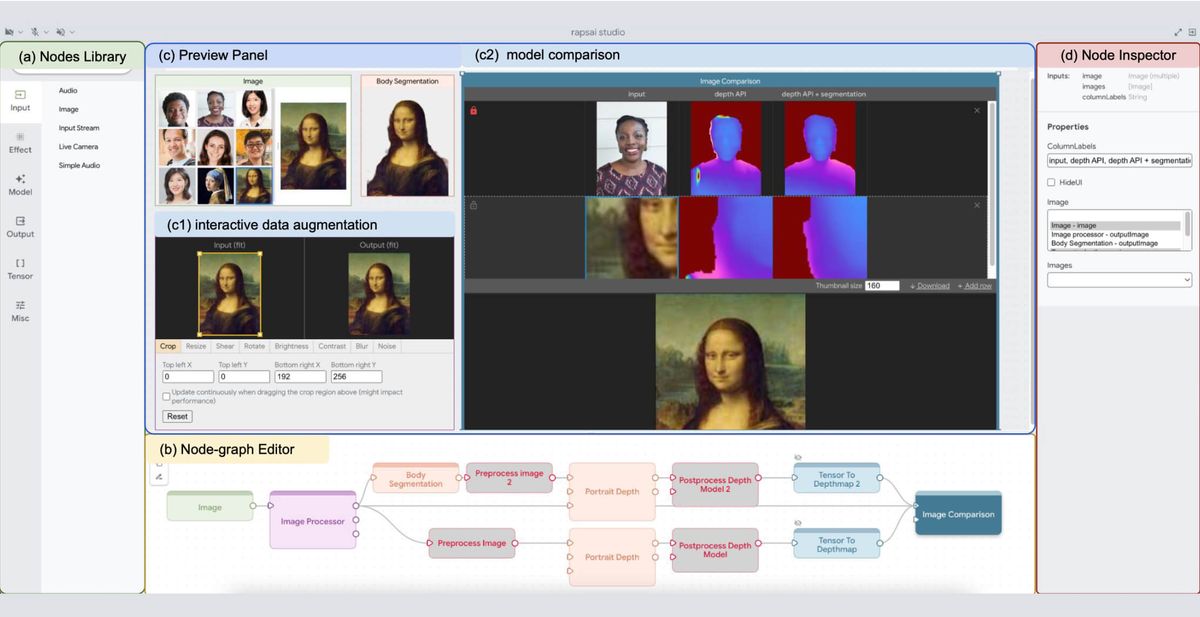
Google today launched a demo site for Visual Blocks and announced a new Colab integration. Visual Blocks, announced last month is Google's no-code visual programming framework to easily create machine learning (ML) pipelines. Designed to lower the barriers to entry for ML-based multimedia applications, Visual Blocks aims to streamline the development process and encourage experimentation without the need for coding expertise.
Visual Blocks, formerly known as Rapsai, was detailed in a research paper that received an Honorable Mention Award at last month's ACM CHI 2023. The tech giant says it developed Visual Blocks to address the challenges faced by cross-functional teams working on ML-based multimedia prototypes.
Visual Blocks provides an intuitive, no-code environment for rapidly building and testing ML pipelines, making it easier for users to experiment with pre-made models and datasets.
To demonstrate the power of Visual Blocks, Google provides two Colab integration examples for users to try, Cartoonization and Style Transfer. These examples showcase the platform's flexibility and ease of use, and show how Visual Blocks can help users create compelling AI-driven multimedia applications.
Google also released three tutorial videos to help users get started with Visual Blocks. The tutorials cover:
- Creating Effects, which demonstrates how to use a live camera and ML models to create effects like face stickers
- Comparing Models, which guides users through importing custom ML models and comparing their results side-by-side
- Integrating with Colab, which shows how to use Visual Blocks in Google Colab and create nodes for custom Python code.
The rapid acceleration of AI technologies has created a need to equip engineers and individuals from various backgrounds with essential knowledge. Google's Visual Blocks and Apple's Co-ML initiative exemplify how companies are addressing this need by developing more user-friendly tools, and encouraging learning, experimentation, and innovation. These efforts pave the way for a future where AI education is accessible to everyone, empowering individuals to harness the power of AI for personal and professional growth.

